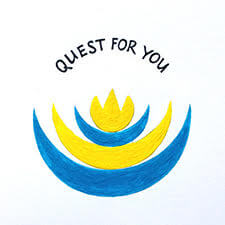Good morning
- Have you heard about naseeb ?
- I hadn’t until I read a wonderful novel that is all about naseeb
- “People who are beset by tragedy once and twice are sure to grieve again. Fate finds it easier to retrace its treads.”
- It had been a while that I read fiction
- In the last years I mostly concentrated on non-fiction books.
- Books that focused on leadership, motivation, productivity, anything that would help me improve.
- But occasionally I turn to my greatest passions – which is reading and getting lost in a great novel.
- The book I am talking about is called The Perl that Broke its Shell and it was just such a novel,
- One that you can’t put down until you finished it.
- The author is Nadia Hashimi was born and raised in the US but her parents were born in Afghanistan and left in the early 1970s, before the Soviet invasion. She grew up surrounded by a large family of aunts, uncles and cousins, keeping the Afghan culture an integral part of their daily lives.
- The book tells the story of women in Afghanistan – 2 different times – one in the early 1900s and in the present time.
- The author created 2 different story lines so the reader can compare how the lifes of women in her country has changed / or not over the span of over 70 years.
- And here in this brutally honest story – I read about child marriages, warlords, political unrest, drug addiction, corruption and above all – abuse of women
In the authors words:
I wrote this story to share the experience of Afghan women in a fictional work that is made up of a thousand truths.
- In a story that highlights that your gender is of ultimate consequence – the word naseeb appears numerous times
- The word that was new to me but it quickly became obvious to me what it meant
- “The hell with naseeb. Naseeb is what people blame for every thing they can’t fix.”
Here is the Wikipedia definition:
Naseeb (also spelled Nasib or Nasip) (Arabic: نصيب) is an Arabic term used in many languages including Indonesian, Malay, Persian, Turkish, Pashto, Sindhi, Urdu, Hindi, Bengali and Punjabi it means destiny or fate. The literal meaning in Arabic is “share”, but it came to be understood as “one’s share in life”, and thus his destiny.
- The author did an amazing job illustrating the struggles of these women.
- The outside struggles are as hard as they come when you imagine living as a confined women under complete control of an often tyrant husband and a social structure that devalues your status in society.
- Even in your own family you are not safe. Aside for your husband, there are mother in laws, other wives, children of other wives, and so on. Each come with their own challenges.
But there are also the internal walls these women hit. Naseeb is one of them.
- Growing up being told your (often miserable) was meant this way?
- That the decision that were made for you are part of your destiny?
- seeing that there ARE other options, just not for you?
- Imagine a life like this.
But guess what?
- many of us believe in something quite similar, we just don’t call it Naseeb.
- We call it destiny, the life we are meant to have, the cards that were drawn for us, the path laid out this way, the hand we’ve been given
- We say or think it in many ways when life doesn’t work out the way we imagined
- When we lost yet another job
- When our parents fight yet again or our marriage ends in divorce
- When we didn’t get what we were hoping for so badly – the job we really wanted, the good grade on an exam, the well-deserved promotion at work, the attention from your significant other, etc
- Whatever it may be … the feelings that this is how we are meant to live often creep in/
- We believe in Naseeb.
- Some of us where told so by our parents. I recall my grandmother – the eternal pessimist – would always say – that luck just doesn’t run in our family
- Subconsciously we adapt things we hear as children and they guide our life until we notice that they are not true
- And sometimes we simply tell ourselves because we tend to judge the rest of our lifes based on the outcome of one or 2 events.
- If you decide to read the book – and I truly encourage you to build some fiction into your life – it often teaches me more than a self-help book –
- you will see that your Naseeb is controlled by only one person, and that person is you.
- There are inspiring examples in the book that show that you don’t have to be a victim to your circumstances, no matter how difficult they are.
- If you think that this is just the stuff movies and books are made from, think again
- Read any non-fiction book on leadership and it most likely tells at least one story of a famous business person that made it from dishwasher to millionaire.
- Its what all our lives are made of – big or small – we overcome obstacles daily
- I realize that huge change is never easy.
- But that’s also the beauty of life.
- We GET to change our Naseeb. Every one of us. We do it every day. When we make decisions. Small and big decisions. All of them change the course of our lives.
- What was so remarkable about this book was that these women were not able to decide much at all in their life’s.
- Couldn’t even leave the house without permission.
- If you imagine being inside your home 24/7 no access to TV or internet – basically no access to the outside world, then what does that leave you with? Not much right?
- And yet – they found a way to overcome
- And so can you
- Whatever your obstacles are – there are ways around them
- The limits may be set by the outside world but the power to overcome them comes from within yourself.
So today I think there are 2 things we are here to contemplate:
- An eternal gratitude for our life. I would venture a guess that none of you who are listening to this podcast have to life under circumstances comparable to the ones described in the book. Think about how amazing your life is because you get to choose. it’s a privilege to be able to be free.
- And next, think about some of the areas of your life that you think are your naseeb – meaning you don’t think you can’t change them. Or is it that you don’t want to change them? Are you just comfortable? Is it because you don’t know what’s after that? Fear of the unknown?
Dig a little and search. Are you living with beliefs that were inculcated into you as a child? Or are you indirectly deciding the rest of your life based on one failure in the past?
Think again. Tomorrow is an unwritten page – what will you write on it?
Until next time!!
“The human spirit, you know what they say about the human spirit? It is harder than a rock and more delicate than a flower petal.”







0 Comments